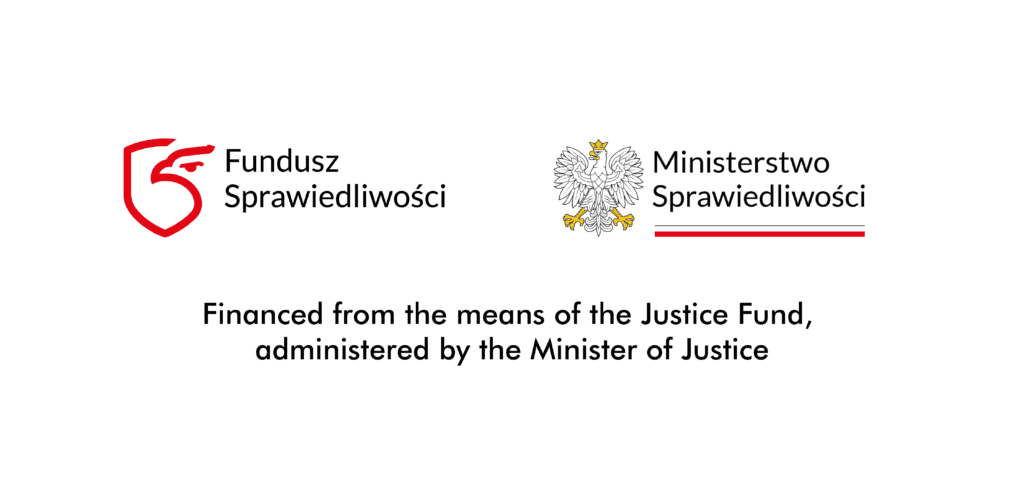Donald Tusk’s government will not find it easy to liberalize abortion in Poland

Poland’s foreseeable shift to a left-liberal coalition government following the October 15 elections, where Law and Justice (PiS) lost its majority in the Sejm, will have a number of consequences. One of them could be the liberalization of its abortion laws, which is an important electoral promise that was made by Mr. Tusk and some of his allies. A difficult and challenging time lies ahead for those who stand in favor of the right to life.
Zuzanna Dabrowska
“The only new compromise the Left can agree to is the full decriminalization of abortion. I am confident that we will find a majority for this demand,” New Left MP Katarzyna Kotula has claimed on the TVN TV channel. Just a day after the inauguration of the new Sejm on November 13, MPs belonging to the New Left group – an alliance of several left-wing parties – handed two bills on abortion to the speaker.
The first, called the Safe Termination of Pregnancy Bill, calls for, among other things, “guaranteeing the right to health care services in the form of termination of pregnancy until the end of the 12th week of pregnancy, and in certain cases beyond that time.”
The second proposal includes the partial decriminalization of acts related to the termination of pregnancy through amending the existing criminal code with a paragraph providing for “the complete decriminalization of abortion performed up to the 12th week with the woman’s consent, and the decriminalization of abortion performed with the woman’s consent in a situation of severe, irreversible disability or incurable disease of the fetus.” In addition, it would repeal the existing paragraph stating that “the same punishment shall be imposed on anyone who assists or induces a pregnant woman to terminate her pregnancy in violation of the law.”
In short, the left side of the Polish political scene wants abortion to be allowed unconditionally up to the 12th week of pregnancy, and in certain situations at later stages of pregnancy as well. This is a reference to the October 2020 ruling of Poland’s Constitutional Tribunal, a landmark ruling that went counter to the overall trend in Europe. The Polish constitutional court, examining a motion filed by a group of MPs from both Law and Justice and its right-wing opposition, Confederation, ruled at the time that eugenic abortion, i.e. the killing of an unborn child due to a suspected disease or genetic defect, was incompatible with the country’s constitution. The ruling, which was widely protested by the feminist community, means for example that an abortion can no longer, as was the case in the past, be legally performed in Poland on an unborn child who is believed to have Down syndrome.
This does not mean, however, contrary to the lies spread in the aftermath of the Constitutional Tribunal’s ruling – not only by abortion supporters, but also by a large part of the media – that abortion is now completely banned in Poland. It is still permissible in two cases: when the pregnancy threatens the life or health of the mother, and when the pregnancy is the result of a criminal act, namely rape or incest.
The Polish constitutional court’s October 2020 ruling in no way limits the possibility of aborting pregnancies in these situations. It is important to stress this fact, as there has been a campaign of fake news saying that doctors in Poland now fear criminal liability for performing abortions when faced with the dramatic dilemma of saving a woman or her child. Such lies have been circulated widely by the Polish pro-abortion lobby since that 2020 landmark ruling.
We now know whose fault it is that Law and Justice lost Poland’s election!
Donald Tusk’s Civic Platform (PO) shifting to the left
The topic of abortion has been one of the leading themes in the New Left’s campaign, which is not surprising. Liberalizing abortion is a typical demand of the left. For many commentators and probably voters as well, however, it was – at least initially – a bit of a surprise that this radical demand was included in the Civic Platform’s “100 concrete steps” which were presented during the electoral campaign. This promise was worded as follows in its concrete step #9: “Abortion up to the 12th week of pregnancy will be legal, safe, and accessible. No hospital operating within the national health service (NFZ) will be allowed to hide behind the conscience clause and refuse this procedure. The decision must be up to the woman.”
And then, at the Civic Platform (PO) Program Conference in Tarnów in September, its leader, Donald Tusk, said: “Each woman will decide whether she wants to be a mother. In our first 100 days, Polish women will regain their dignity, their happiness.” In 2022, Tusk, who is now most likely to become Poland’s next prime minister, had already said similar things after his complete turnaround on the issue of abortion during the wave of protests that followed the Constitutional Tribunal’s 2020 ruling: “Abortion is a woman’s decision, not a priest’s, prosecutor’s, policeman’s, or party activist’s. And we have written it down as a concrete project, which we will be ready to introduce in the Sejm on the first day after the next parliamentary elections. There it is written: abortion up to the 12th week is a decision of the woman alone.”
Meanwhile, as Wysokie Obcasy (High Heels), a women’s supplement to the left-wing, pro-abortion, partially Soros-owned Gazeta Wyborcza daily newspaper, bitterly notes, “Tusk also announced that he would not allow anyone to join the party’s lists who is against liberalization, which unfortunately somewhat diverged from reality after Roman Giertych ran from the KO list.” KO here refers to the Civic Coalition, the electoral alliance led by Tusk’s PO, which also comprises the Greens and another left-liberal party, Nowoczesna (“Modern”). Roman Giertych, on the other hand, is a lawyer who used to be the leader of a very right-wing, strongly anti-abortion party: the League of Polish Families.
Centrist Third Way alliance hitting the brakes
Within Donald Tusk’s governmental coalition there is the Civic Coalition and The New Left, but also Third Way, an alliance of the Poland 2050 party, whose leader, Szymon Hołownia, cultivates an image of being a progressive Catholic, and an agrarian party, the Polish People’s Party (PSL). Third Way is the political force that is now blocking radical ideas on abortion in this liberal-leftist coalition that has been formed against Law and Justice (PiS). Szymon Hołownia was elected speaker of the Sejm after the October 15 elections, but it is actually PSL that constitutes Third Way’s more conservative wing. Officially, Third Way wants a referendum on abortion, although Szymon Hołownia and Władyslaw Kosiniak-Kamysz, the PSL’s leader, have failed to get this included in the coalition’s official agreement.
This agreement also does not include the demand for legal abortion up to the 12th week of pregnancy, which has been repeatedly and loudly criticized by one of the New Left’s most recognizable deputies, Anna Maria Zukowska. “The action that must be carried out concretely (…) is the appointment of national consultants, which concerns the work of the national health service. We need to bring about a situation where women stop being afraid to have babies and doctors have no fear of treating them.”
“Legal issues regarding the withdrawal of the Constitutional Tribunal’s ruling is something we will address. Our friends have their own opinions. We continue to stand by the position that a referendum must be held after the restoration of the status quo,” the leader of Poland 2050 replied to this. At the same time, he added that Third Way’s parliamentary groups (PSL and Poland 2050 have separate groups, although they are partly under a common banner) do include people who support the New Left’s ideas on abortion.
The PSL’s leader in turn points out that worldview issues cannot be subject to party discipline. “This is a matter of freedom of conscience and a matter of worldview, and it therefore cannot be covered by any prohibitions and orders, and that is why we want citizens to have their say on it in a referendum,” Wladyslaw Kosiniak-Kamysz insists.
We gave you victory, you must give us abortion
All of this makes it difficult – for now – to clearly predict whose vision will prevail. What is certain is that the pressure from left-feminist circles will only grow. The aforementioned High Heels supplement reminds us that “nearly 75 percent of eligible women voters participated in the October 15 elections (…). This is in excess of 10 percentage points more than in the 2019 elections, and 20 percentage points more than the pre-election polls indicated.”
“Women took matters into their own hands and not only chased away PiS, giving power to the democratic opposition, but also tremendously weakened the role of the most anti-woman political faction, the Confederation (if women alone had participated in the elections, the Confederation would not have entered the Sejm). Non-governmental organizations and women’s initiatives have played a huge role in this process, organizing a multitude of pro-participation campaigns to mobilize women to vote. Also important were the opposition politicians themselves, who for the first time in history made women’s rights issues one of the main topics of the election campaign,” points out High Heels and Gazeta Wyborcza journalist Dominika Wantuch, clearly signaling that the abortion issue will not only not be forgotten, but will even be used as moral blackmail against the new government coalition.
For sure, the new government will also be under pressure from the Abortion Dream Team (ADT), a very radical pro-abortion organization whose main declared task is to help women perform abortions, including illegal abortions, as the ADT loudly boasts.
“According to the declarations made, the Sejm is again to become a place of debate, and not only between MPs and deputies. It is to be open to the public and NGOs. That’s why, together with the organization Prawniczki Pro Abo [Female Lawyers Pro Abo, ed.], we sent a request today to Szymon Hołownia, the Speaker of the Sejm, to set a date for a meeting with us. We want to present Szymon Hołownia with our demands and outline the problems that people with wanted and unwanted pregnancies in Poland face on a daily basis,” reads one of the abortionists’ Facebook posts. “We know the reality of abortion in practice, we face it every day and we know that changes in Polish law are necessary for the safety of pregnant people, and fast,” the activists urged, adding that they “will not be fooled by a referendum.”
Competing solutions for legal abortion
Whispers about possible legal solutions are coming from various directions. The lawyer Kamila Ferenc of the pro-abortion FEDERA Foundation for Women and Family Planning points out that “civil organizations have projects at the ready on abortion, contraception, sex education, and in vitro fertilization.”
“Until now, change was not possible. Today, there is a chance to liberalize the law, and we will demand this, although we fear that Third Way MPs who are demanding (although not all of them) a referendum on abortion will stand in the way. We don’t want a referendum, we don’t want small steps anymore: we want liberalization, which is supported by 70% of the population. The decriminalization of abortion was an idea based on the faint hope that there would be some reasonable people in the Law and Justice party. The problem is that a bill liberalizing abortion is unlikely to be signed by the president, and if it goes to the Constitutional Tribunal in its current form, it won’t stand a chance,” Kamila Ferenc acknowledges in High Heels.
Poland allowed to violate rule of law if ruled by pro-EU liberals
The remedy for Andrzej Duda’s veto, according to attorney Patrycja Kasica, could be a “civic bill of rectification concerning the Constitutional Tribunal.” What does the proposal that was developed at the Soros-founded and Soros-sponsored Batory Foundation contain? A series of changes to restore the proper functioning of the Constitutional Tribunal,” says Kasica, who supports legalizing abortion.
As we read on the Batory Foundation’s website, its most important assumptions are “the declaration of the invalidity of rulings issued with the participation of so-called doubles [three judges out of 15, whose appointment by the new PiS-dominated Sejm in late 2015 has always been considered invalid by the opposition, ed.], new rules for the election of judges, a three-year term of office for the Tribunal’s president, and the immediate re-election of the president of the Constitutional Tribunal.”
The invalidation of the Constitutional Tribunal’s rulings would, of course, also apply to the October 2020 ruling, which has reinforced the legal protection of the right to life from conception in Poland. “These cases will then be proceeded anew, and the sentences issued by the doubles will be declared null and void,” explains Michał Wawrykiewicz, a lawyer belonging to the “Free Courts” initiative, which is critical of PiS. Sylwia Gregorczyk-Abram, a lawyer also involved in this initiative, believes that the Constitutional Tribunal’s ruling can simply be declared null and void. “The Constitutional Tribunal’s rulings on the state’s constitutional principles, including the ruling on the abortion law, will be deemed non-existent and devoid of legal effect,” she said in an interview.
Appeals for recognition of the dignity of life
The pro-life community is deeply worried. The desire to undo the verdicts of the country’s most important court, the Constitutional Tribunal, sounds extremely threatening and, most importantly, it would simply be unlawful. “Under Polish law, judgments of the Constitutional Tribunal cannot be invalidated. If this were to happen, it would be something really bizarre, and it would also be completely outrageous. I fear, however, that Donald Tusk and Brussels will want to legalize abortion at all costs, and will do so through extra-legal methods,” said Paweł Ozdoba, the chairman of the Center for Life and Family, in an interview with Remix News.
However, the coalition’s announcements include not only a reversal of the 2020 ruling, but also a radical liberalization of the law that was in force even before that ruling. In mid-October, a statement on the issue was issued by the Polish Federation of Movements for the Defense of Life. “We view with the greatest concern the campaign of circles undermining one of the basic human rights, which is the protection of life and health during the prenatal period. It was exacerbated in the parliamentary election campaign, in which some circles preached women’s rights, focusing mainly on promoting women’s freedom to decide on pharmacological and surgical abortion, while claiming that this is the view of the majority of Poles,” it reads.
Pro-life activists remind that “a human being in any phase of life has the right to be accepted, and we staunchly oppose all attempts to eliminate him or her from the human community in the first phase of his or her life.” The Polish Federation of Movements for the Defense of Life was referring to the New Left’s bills that were introduced in the Sejm. “The circles supporting such proposals claim that the majority of the population is in favor of them,” the pro-life federation points out, showing that this is not at all the case. According to an April 2023 survey by the Polish Center for Public Opinion Research (CBOS), the majority of those surveyed – 65 percent – do not accept that a woman should be allowed to terminate her pregnancy because of her difficult financial or personal situation. Even more, 69 percent, oppose abortion on demand when a woman simply does not want to have a child.
Poland’s Law and Justice should have stood on the side of life
At the same time, 62 percent of respondents support the possibility of abortion when the child in the womb is known to be handicapped. One problem is that the history of medicine knows of numerous cases in which prenatal tests pointed to an alleged disease, but the baby was later born completely healthy. So-called eugenic abortion takes away such children’s chance for life. “We appeal to all to respect basic human rights, to be kind to children in the prenatal stage of life and actively defend them, and not to harm women, who will pay for abortion with suffering and many long-term complications,” pleaded the Polish Federation of Movements for the Defense of Life.
There is still hope for Poland
It is not worth deluding ourselves that the left and the abortionists will listen to this voice. Neither will they listen to the voice of the Catholic Church, which unequivocally advocates for the need to protect human life from conception to natural death.
Additional concerns may be raised by the fact that even among the ranks of Law and Justice, the party under whose rule the Constitutional Tribunal issued its landmark ruling in October 2020, critical voices are beginning to ring out louder and louder. There is the repeated claim that expanding the legal protection of the unborn is one of the main reasons for the unsatisfactory electoral outcome. Prime Minister Mateusz Morawiecki himself has said something like this.
“It is psychologically understandable that those directly responsible for the policies of recent years and the electoral campaign are now trying to deflect the responsibility for the outcome of the elections. Additionally, there are ideological divisions surfacing within the (PiS-led) United Right coalition. The protection of life has always been like a thorn in the side of the more liberal wing within PiS,” said Law and Justice deputy Bartłomiej Wróblewski in an interview with the DoRzeczy.pl website (here in English on Sovereignty.pl), he is the author of the motion sent to the Constitutional Tribunal regarding abortion.
Wróblewski made it clear that de-emphasizing this topic was not the decision of one person, but enjoyed the approval of the party leadership. “The 2017 petition’s preparation was preceded by a conversation first with our parliamentary group chairman, Ryszard Terlecki, and then with the party leader, Jaroslaw Kaczyński. Only once they assented did the preparation of the case begin. Before we started collecting deputies’ signatures, we also got approval from the broader PiS leadership, and information about our initiative was presented at a meeting of the PiS parliamentary group. Because of its nature, the support for our case was not limited to PiS, however. “Our petition was signed by 107 deputies from PiS, Kukiz’15, and independents,” insists the PiS MP.
How Poland’s Law and Justice failed its pro-life voters on abortion (interview)
So does all this mean that the battle for life is lost in Poland?
The answer is a clear no. The Polish pro-life movement is strong and vibrant. Traditionally, the Poles are more eager to become active when they see the authorities acting against their values. So, paradoxically, government by the liberals and the left may encourage more people to become involved in the pro-life cause. The law is also on the side of the defenders of life. There is absolutely no legal basis for challenging another ruling of Poland’s constitutional court on abortion – the 1997 ruling, which said that aborting on so-called “social grounds” is unconstitutional because it interprets the Polish constitution as asserting that each person’s right to life, including in the prenatal phase of life, must be protected by the state. At the time the Constitutional Tribunal was headed by Prof. Andrzej Zoll, who is considered a legal authority by the new coalition, and this new coalition does not have a majority to change the country’s constitution, or even to override President Andrzej Duda’s veto.
In addition, inspiration for Polish defenders of the right to life from conception may come from the United States, where, after years of struggle, the Roe v. Wade ruling, through which the US Supreme Court forced all states to legalize abortion in the 1970s, was successfully reversed in 2022. And while today’s Poland may appear to be the last bastion of defense of the right to life from conception in Europe, it is far from isolated globally.




